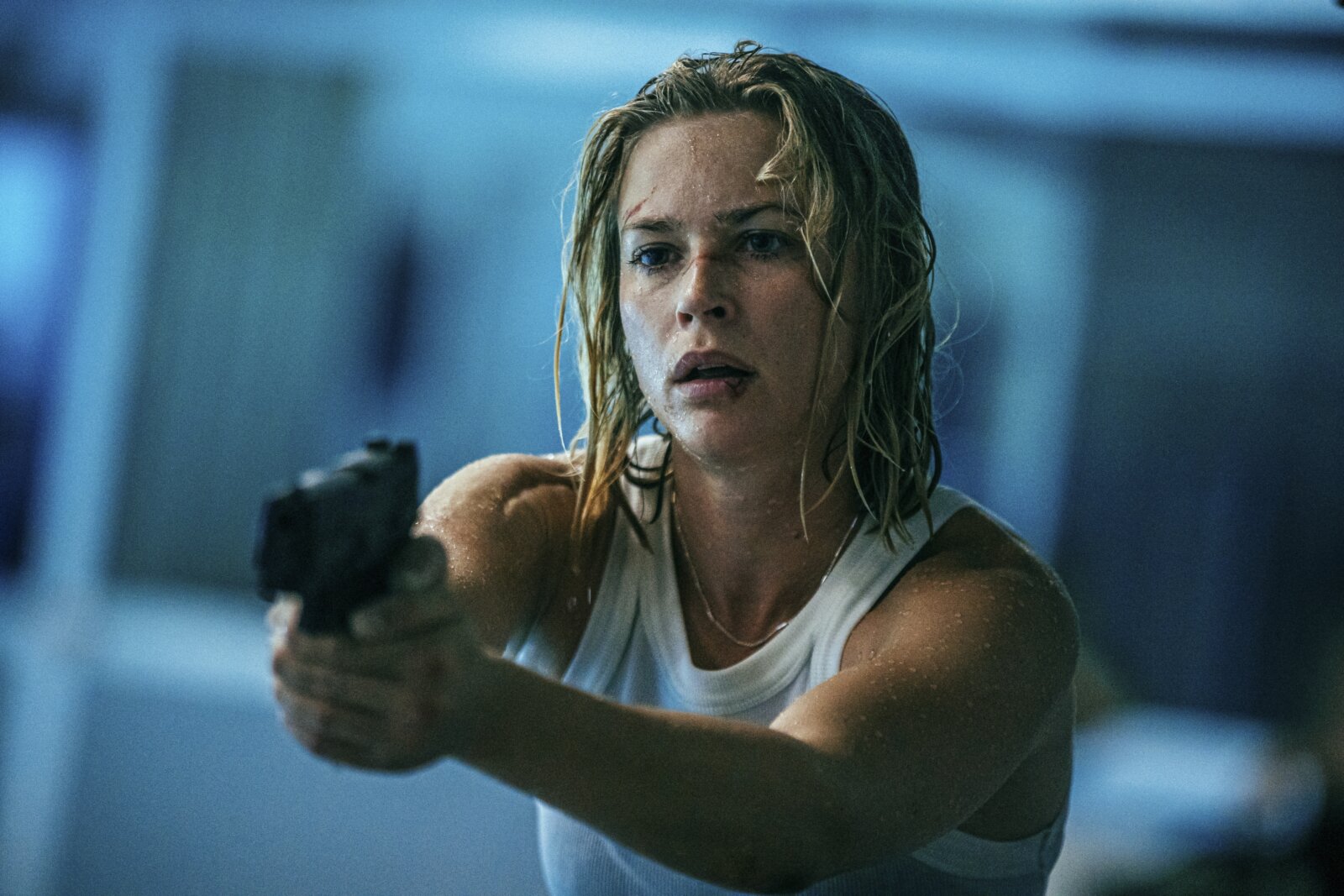 ★★★
★★★
“English? German? – ENGLISH? GERMAN??”
The term “Netflix Original” covers a range of productions, from pre-made movies they buy for distribution, through to movies commissioned from the ground up by the company. The results are equally variable. For every What Happened to Monday, there’s an Interceptor. This one came out of Germany: not exactly renowned for action, particularly action heroines. But it quickly and unexpectedly became the most-watched foreign language movie on the streaming service, worldwide. Does it deserve the success? We watched it and wrote up our thoughts independently, which have been edited and combined below. But, first: some introduction, and let’s find out what the movie is about.
Dieter: This movie was produced by long-established studio German Constantin Film, who in the 60s gave us the famous (or notorious, depending on your perspective) Karl May westerns, as well as German Edgar Wallace thrillers. It went bankrupt in the 70s but was saved and lead to new successes due to late producer Bernd Eichinger. He produced films such as The Never-ending Story, The Name of the Rose, House of Spirits, the first Fantastic Four movie (yes, that was German), the Resident Evil series and Downfall. After his death Constantin Film has mostly been hit and miss.
Interestingly, in the end credits you can see that Oliver Berben was involved in its production. Berben is a successful producer, now leading manager of Constantin Film, and son of well-known German actress Iris Berben, who played detective inspector Rosa Roth for a good 2 decades on TV. He has produced a number of movies with her in the leading role, as well other movies and countless TV productions. His most well-known movie might be Roman Polanski’s Carnage, with Jodie Foster. I’m not sure if this movie was produced by Constantin, then sold to Netflix, or if Netflix “ordered” Constantin Film to produce the movie. Looking at the results, I get the feeling this was from the get-go a collaboration between the two.
Jim: The heroine is Sara Wulf (Goursaud), a former Bundeswehr soldier, whose husband was killed in action, and who suffers from a touch of PTSD herself. She’s working to move to the US with her son, Josh, and has a visa appointment at the consulate in Frankfurt. But while she’s waiting to be seen, Josh vanishes. The consular chief of security, Erik Kynch (Scott) is sympathetic, until the surveillance footage shows Sara arriving alone. She’s locked up pending her being escorted off the premises. But, naturally, she escapes, and encounters a young woman (Abova), being held in an apartment in the complex. They agree to help each other – but it increasingly becomes clear that there’s a lot more going on than a missing child.
Dieter: Color me surprised when finding out the movie is… not bad at all. Actually, it is quite watchable. While the typical “diversity agenda” of Netflix is at play here, fortunately, there is no virtue-signaling, and I’m happy for it. I had some problems with Sara being a “special forces elite soldier” and “combat trained”. It’s true German soldiers were in Afghanistan but they were not involved in any combat missions but were mainly helping in re-building projects, or the training and aid of Afghani security forces. Since the end of World War II, Germany has had a strict rule of not getting involved in any military battles with the idea “that no war should ever come from Germany again”. So, a German soldier being involved in a direct military action, as scenes in this movie seem to indicate, is highly questionable.
 Also, German “elite forces”? I don’t know. I won’t say it is impossible: there are probably certain groups for specific tasks that I am not aware of. But having done my – at that time obligatory – army service in the Bundeswehr 30 years ago, I have my doubts. I’m willing to suspend my disbelief here. The movie echoes popular action thriller plots of the past such as Jodie Foster’s Flight Plan and Panic Room, Angelina Jolie’s The Foreign Son, and of course Liam Neeson’s Taken. So, the plot won’t win any awards for originality. It’s also happy to re-use elements from other sources: Tom Cruise window climbing; Mel Gibson shoulder dislocation; or a MacGyver-like improvised explosives.
Also, German “elite forces”? I don’t know. I won’t say it is impossible: there are probably certain groups for specific tasks that I am not aware of. But having done my – at that time obligatory – army service in the Bundeswehr 30 years ago, I have my doubts. I’m willing to suspend my disbelief here. The movie echoes popular action thriller plots of the past such as Jodie Foster’s Flight Plan and Panic Room, Angelina Jolie’s The Foreign Son, and of course Liam Neeson’s Taken. So, the plot won’t win any awards for originality. It’s also happy to re-use elements from other sources: Tom Cruise window climbing; Mel Gibson shoulder dislocation; or a MacGyver-like improvised explosives.
Jim: Yeah – I may have yelled, “A few household chemicals in the proper proportions” at the screen there! I thought this was entertaining. It’s main strength is Goursaud, who manages to be both a bad-ass and a vulnerable mother, often simultaneously. She comes across as fairly credible in the fights, even when going up against bigger opponents. The script puts some effort into establishing her credentials, and she has a lithe toughness to her which works well.
Dieter: You must understand: we Germans are pretty lousy when it comes to action movies. The few there are, usually have actors attempting a weak, second-rate impression of the American attitude of “Look how big my balls are”. This always feels fake, because we Germans simply don’t see ourselves like that. We have no problems seeing us in roles of evil Nazis or “the good German”, e. g. Armin Mueller-Stahl, but hardly ever as action heroes. That definitely has to do with our history, the idea of “German heroism” being exploited and abused by the Nazis. So at first I was going to dismiss the movie as not interesting.
Surprisingly, it doesn’t commit the usual mistake of making its protagonist an unbeatable heroine. To “do it the German way”, you must put things into a more nuanced context. We wouldn’t expect it from an American movie, but definitely would in a German one. I know it’s unfair to home-grown productions, but we judge them on a different basis. Yes, there is the early scene where Sara gets pushed around and immediately gets into combat mode (because… you know… PTSD). But I think it’s the only scene I found unbelievably overdone. I feared the movie would continue that way – but luckily it didn’t!
Instead, it shows that – in contrast to someone like Angelina Jolie in Salt – though she is “trained for this” as she says, the reality sets in quickly. Even a single man with some combat training is always in a better position and will eventually overpower her. If she wins a fight, it is because she uses everything at her disposal in her environment. There seems to be an extra shot of adrenaline when push comes to shove and her trauma sets in. Nothing is won easily for the protagonist here and female power fantasies are left at the door! The fact that Goursaud actually has some muscles, is a further plus.
Jim: There might be a bit less actual action than I expected, but what there is, is done well, with a couple of sequences edited together to look like a single take. The peak is likely a battle against two assassins in an apartment. It’s no Atomic Blonde, in length or quality. Then again, who is? I also appreciated the way she’s not infallible. Witness the way her first attempt to get around the consulate, ends in her bouncing off a balcony, and falling to the ground.
Dieter: The acting is for once not a distraction, as so often in German movies. German-French actress Goursaud is in most scenes very believable, playing a stressed mother as well as in combat mode. Lera Abova who plays the role of Russian Kira doesn’t fare quite so well. Despite being Russian, I never got the feeling that she was, and sometimes had problems understanding what she was saying: she definitely had no Russian accent either.
The big surprise was Dougray Scott, who last time I saw him, had a role in Desperate Housewives. I could imagine that a consular officer would react exactly as he did in the situations here. What really stood out were his German language skills, speaking fluently with only a very slight accent. You have to understand how difficult it is to speak German like that. The movie refers to it in the beginning, when Sara demonstrates to her son how his father spoke German with a broad American accent. Contrast a scene in Tomorrow Never Dies where Pierce Brosnan spoke in German and I couldn’t understand what he was saying. The language skills Scott demonstrates in this movie here are excellent. And I say that as a German. I was mightily impressed.
Jim: I noticed in the end credits that there were two dialogue coaches for him: one to speak German and the other to help him sound American. Seems like both did their job! Chris found no reason to complain about the latter, and she has an ear for that, both in English and Spanish (you should hear her eviscerate any non-Cubans trying to sound Cuban!). While I’m here, I noticed that the credits listed an “intimacy co-ordinator”. Weird, since there was nothing at all on screen to suggest one would be needed. Maybe Zübert is going to pull a Zack Snyder and realize an unrated cut, with all the missing sex and violence?
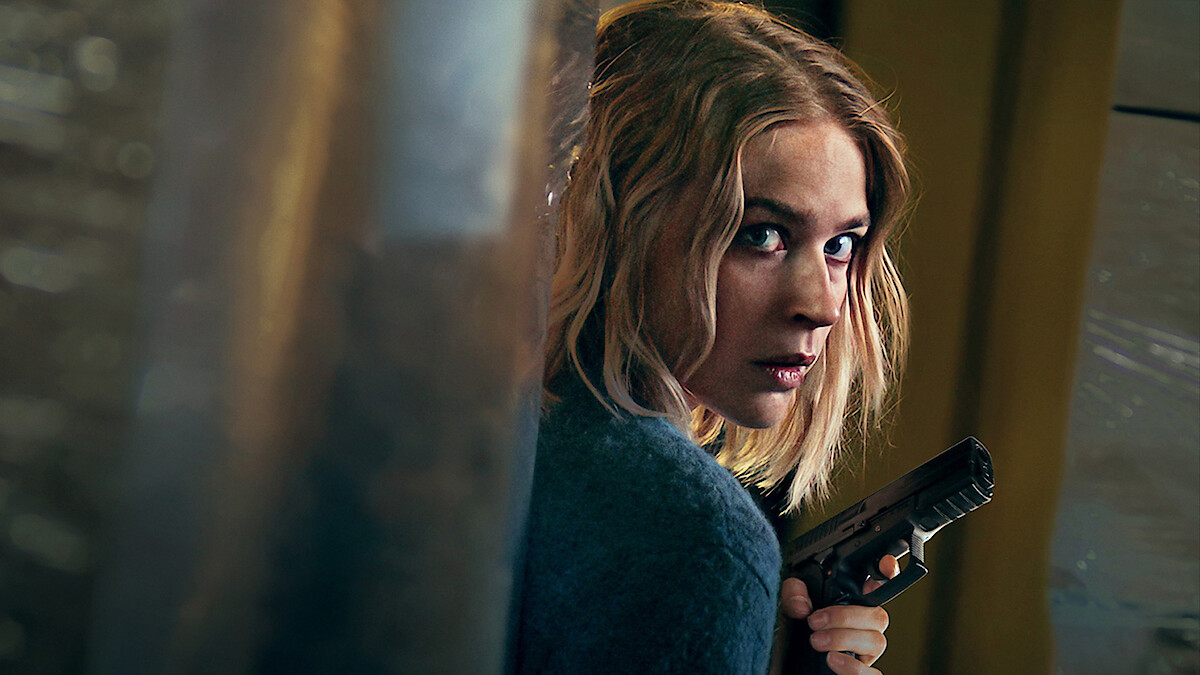
Dieter: The most fascinating thing for me was the consulate itself. I’ve never been in one, so I don’t know, but I could imagine that it might look like this. You get the feeling this is not just a building but almost its own village with an auditorium, conference and office rooms, warehouse, cafeteria, locker rooms, swimming pool, nursery, hospital room, guest apartments, truck departure hall and safety room. Are consulates really that big? Or was that made up? The movie is supposed to take place in Frankfurt, Germany’s fifth-biggest city, and early shots of the city and its central station are genuine. So I was quite surprised to read in the end titles “filmed in and around Vienna”. Aha…???
Jim: I was less enthralled with the story. There are points where it seems like a parade of clichés, such as the PTSD, which never serves much purpose. Or the scene at the end, where the villain lays out his plan to the heroine in all its intricate detail. It’s also crafted to raise questions, such as what would have happened if Sara hadn’t unilaterally decided to leave Josh alone in the consulate play-room? It’s certainly quite easy to come up with simpler ways for the bad guy to achieve his goals.
Dieter: The whole plot has a typical thriller solution which is a bit far-fetched and over-complicated. But I liked the idea of the villain of the piece giving an explanation for his actions. The previous day, I had seen Steven Soderbergh’s spy thriller Black Bag, and the characters’ emotions and motivations seemed thin, and not quite understandable. Kudos to the writers here for creating believable motives and emotions.
Jim: Despite my qualms about the script, it’s not significantly worse in this area than your typical straight-to-video actioner. That might be the best way to approach this, as a throwback to a simpler era, where one man – or woman now – could go up against a parade of enemies, and emerge battered but unbowed. I’m certainly happier to see my Netflix subscription used towards this kind of thing than overblown nonsense like The Electric State.
Dieter: A little tidbit: When I graduated, I briefly considered applying for jobs in German embassies overseas. One big drawback was being regularly required to move to other places in the world, making it difficult to settle anywhere and build a life. This is one reason the villain here gives for his acts and it absolutely made sense to me. But overall, this was a good action movie, and from Germany, no less. Even a believable, and perhaps the first real, girls with guns movie from here. It’s really astonishing to me. I expected this to fall flat on its face, especially when replicating American action formulas. But despite my utter disbelief something like this could be possible from my country, the film succeeds. Signs and wonders still do happen, as we used to say here!
Dir: Christian Zübert
Star: Jeanne Goursaud, Dougray Scott, Lera Abova, Kayode Akinyemi





 Fair play to Woollard and his team for making a feature movie with no resources to speak of. The problem is, watching this, it’s painfully obvious that they had no resources to speak of. Two space-suits and a fog machine are not enough for a film, especially in a genre like science-fiction, which tends to rely on spectacle. Oh, smaller scale works can still be remarkably successful: the night before this, I watched glorious and highly recommended time-travel film Beyond the Infinite Two Minutes. But if you’re not going to offer epic scale, you need to have something else to repay the audience. An hour and three-quarters of watching characters stumbling about in the gloom is not it.
Fair play to Woollard and his team for making a feature movie with no resources to speak of. The problem is, watching this, it’s painfully obvious that they had no resources to speak of. Two space-suits and a fog machine are not enough for a film, especially in a genre like science-fiction, which tends to rely on spectacle. Oh, smaller scale works can still be remarkably successful: the night before this, I watched glorious and highly recommended time-travel film Beyond the Infinite Two Minutes. But if you’re not going to offer epic scale, you need to have something else to repay the audience. An hour and three-quarters of watching characters stumbling about in the gloom is not it.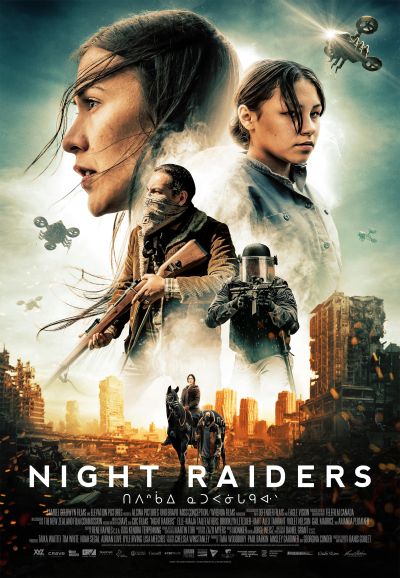 This rather gloomy slice of social science-fiction seems to take place in a post-apocalyptic version of Canada, albeit a fairly low-key apocalypse. It seems to have led to a rigidly class-based system, with a sharp division between “citizens” and the rest. That leaves the indigenous population on the outside, scrabbling hard to survive and avoid having their kids “re-educated” in military-style academies. [This pointedly echoes
This rather gloomy slice of social science-fiction seems to take place in a post-apocalyptic version of Canada, albeit a fairly low-key apocalypse. It seems to have led to a rigidly class-based system, with a sharp division between “citizens” and the rest. That leaves the indigenous population on the outside, scrabbling hard to survive and avoid having their kids “re-educated” in military-style academies. [This pointedly echoes 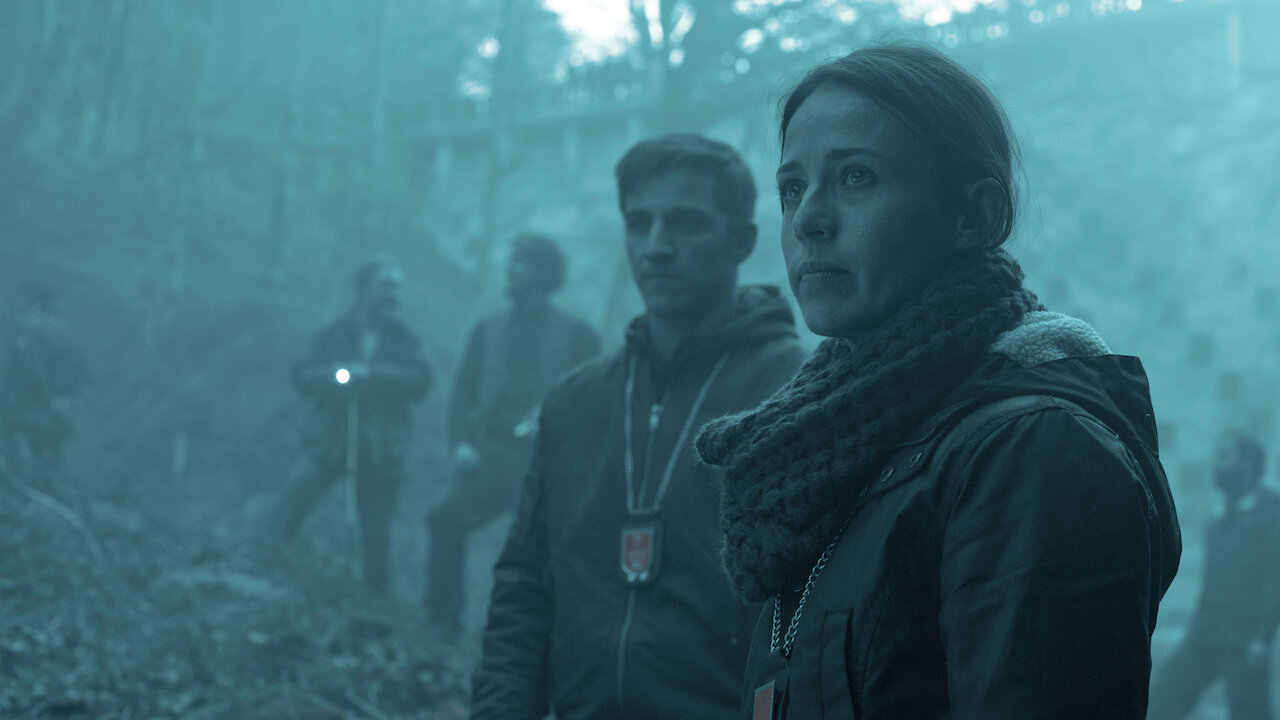 The Baztan trilogy consists of three movies, based on the novels by Dolores Redondo. The setting for these is a small area in the Basque country of Spain, not far from the border with France. Much like the small-town English villages such as Miss Marple’s St. Mary Mead, or Death in Paradise‘s Honoré, the murder rate in this charming and picturesque area appears to rival that of a South American war-zone. I guess you can describe the series as Español negro, being a Mediterranean-based version of Nordic noir. Like those, you have a detective with a troubled past, a history that frequently seeps into her current life, They are investigating crimes resulting from what’s unquestionably the darker side of human nature, and the results are uncomfortably close to home.
The Baztan trilogy consists of three movies, based on the novels by Dolores Redondo. The setting for these is a small area in the Basque country of Spain, not far from the border with France. Much like the small-town English villages such as Miss Marple’s St. Mary Mead, or Death in Paradise‘s Honoré, the murder rate in this charming and picturesque area appears to rival that of a South American war-zone. I guess you can describe the series as Español negro, being a Mediterranean-based version of Nordic noir. Like those, you have a detective with a troubled past, a history that frequently seeps into her current life, They are investigating crimes resulting from what’s unquestionably the darker side of human nature, and the results are uncomfortably close to home.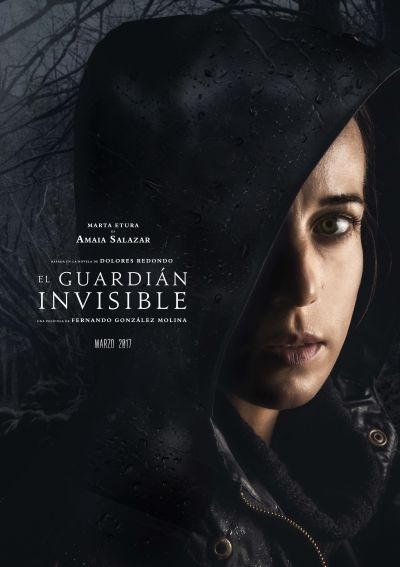 I’ve traveled a fair bit around Spain and Mediterranean Europe in my time, and the weather was never as unremittingly
I’ve traveled a fair bit around Spain and Mediterranean Europe in my time, and the weather was never as unremittingly 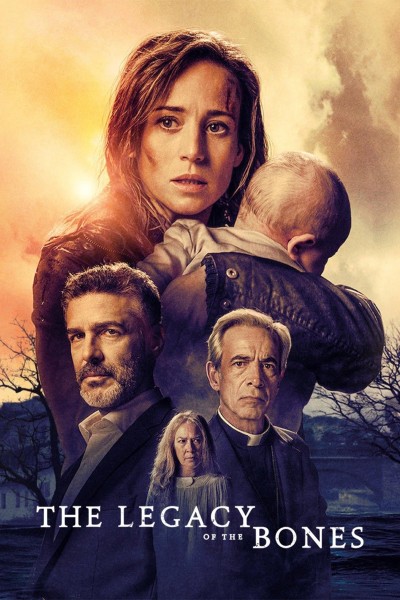 We jump ahead about a year for the second installment. Amaia Salazar (Etura) has now had the baby she announced she was expecting during the first film, and is adjusting to the need for balance between her career and motherhood, with her husband, James. After completing her maternity leave, she returns to work, and is put on a case of church desecration with cult undertones, at the request of the enigmatic Fr. Sarasola (Arias). This is tied to the Cagots, a historically persecuted group native to the region. Simultaneously, there is an ongoing string of murderers committing suicide, each leaving behind a one-word message: “Tartalo”. It’s a reference to a baby-eating giant from Basque mythology, and seems to be linked to the cave of remains found in the previous film.
We jump ahead about a year for the second installment. Amaia Salazar (Etura) has now had the baby she announced she was expecting during the first film, and is adjusting to the need for balance between her career and motherhood, with her husband, James. After completing her maternity leave, she returns to work, and is put on a case of church desecration with cult undertones, at the request of the enigmatic Fr. Sarasola (Arias). This is tied to the Cagots, a historically persecuted group native to the region. Simultaneously, there is an ongoing string of murderers committing suicide, each leaving behind a one-word message: “Tartalo”. It’s a reference to a baby-eating giant from Basque mythology, and seems to be linked to the cave of remains found in the previous film.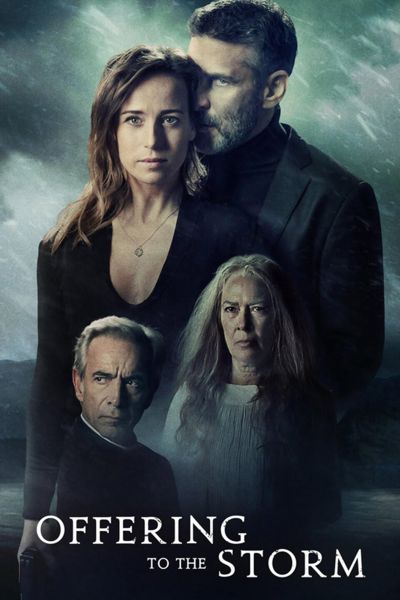 Oh, dear. I think it’s probably been a very long while since I’ve been so underwhelmed by the finale of a trilogy. All the pieces were in place, after the first two entries, for a grandstand finish to the series. But the script basically fumbles things in every conceivable way, pushing to the front elements that you really don’t care about, while all but discarding things that seemed of crucial importance. There is an effort to tie everything together, with the various crimes from its predecessors being linked into an occult conspiracy in which members of a Satanic circle sacrifice baby girls, and receive worldly power in exchange. This aspect is okay, Amaia having to go up against a group whose power is embedded at the highest levels of local society. The creepiest element is perhaps that the sacrifices seem to
Oh, dear. I think it’s probably been a very long while since I’ve been so underwhelmed by the finale of a trilogy. All the pieces were in place, after the first two entries, for a grandstand finish to the series. But the script basically fumbles things in every conceivable way, pushing to the front elements that you really don’t care about, while all but discarding things that seemed of crucial importance. There is an effort to tie everything together, with the various crimes from its predecessors being linked into an occult conspiracy in which members of a Satanic circle sacrifice baby girls, and receive worldly power in exchange. This aspect is okay, Amaia having to go up against a group whose power is embedded at the highest levels of local society. The creepiest element is perhaps that the sacrifices seem to 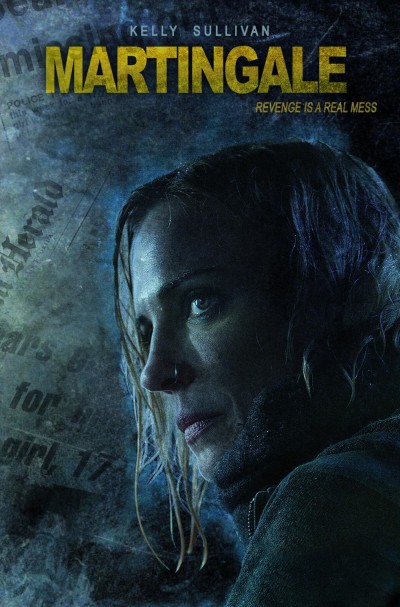 It’s probably symptomatic of… something, that the film’s title is never explained. With the main character working in a casino, I presume it’s a reference to the Martingale betting system, where you basically double your bet after every loss. It guarantees a profit – unless you hit such a long losing streak you run out of money entirely. Its relevance here is uncertain, and I doubt most viewers would know what a martingale is either. But then, the film is very good at not explaining stuff. Another example would be, what the scam is supposed to be with Andi (Sullivan) collecting left-behind cash-out casino slips and handing them to a collaborator, Whit (Melikhov). These are for trivial amounts, so why bother?
It’s probably symptomatic of… something, that the film’s title is never explained. With the main character working in a casino, I presume it’s a reference to the Martingale betting system, where you basically double your bet after every loss. It guarantees a profit – unless you hit such a long losing streak you run out of money entirely. Its relevance here is uncertain, and I doubt most viewers would know what a martingale is either. But then, the film is very good at not explaining stuff. Another example would be, what the scam is supposed to be with Andi (Sullivan) collecting left-behind cash-out casino slips and handing them to a collaborator, Whit (Melikhov). These are for trivial amounts, so why bother?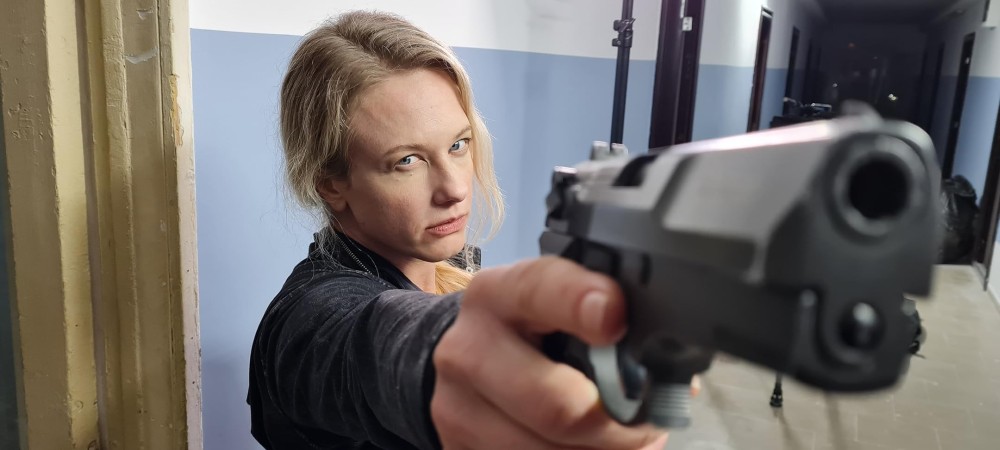 ★★
★★ Based on the trailer, I was hoping for something like a Korean version of The Transporter. It seemed to promise this, with Jang Eun-ha (Park) playing a courier for Baekgang Industries, a company who will transport things – mostly people, it appears – from Point A to Point B, when regular delivery methods are not possible. For example, because the passenger in question is being chased by enemies, and needs to make a quick exit from the country before he’s found. Her latest mission involves baseball pitcher Kim Doo-shik, who has blown the whistle on a match-fixing scandal, so needs to escape before those behind it get hold of him and young son Kim Seo-won (Jung).
Based on the trailer, I was hoping for something like a Korean version of The Transporter. It seemed to promise this, with Jang Eun-ha (Park) playing a courier for Baekgang Industries, a company who will transport things – mostly people, it appears – from Point A to Point B, when regular delivery methods are not possible. For example, because the passenger in question is being chased by enemies, and needs to make a quick exit from the country before he’s found. Her latest mission involves baseball pitcher Kim Doo-shik, who has blown the whistle on a match-fixing scandal, so needs to escape before those behind it get hold of him and young son Kim Seo-won (Jung).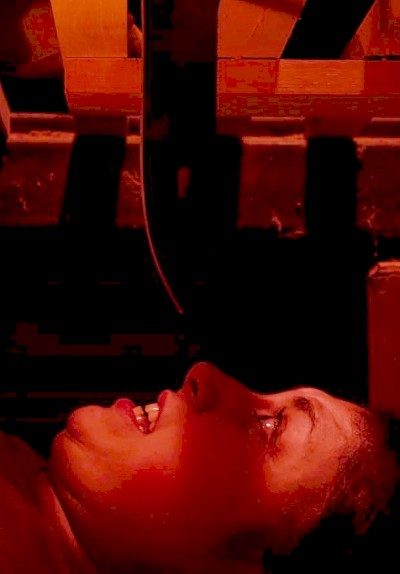 This is fairly sparse, unfolding entirely in the single location of a furniture factory, over the course of a single night. The central character is Karen (Terrazzino), a single mother who has just taken on the job of a cleaner and overnight security guard at the premises, in order to provide for her young daughter, who is ill on the night Karen has to start work. These issues quickly pale into insignificance – though not irrelevance – when a group of masked men enter the building, looking to hunt down and kill her. With the doors chained from the outside and the phone lines cut, Karen is entirely on her own against the bigger and stronger, but fortunately not smarter, intruders.
This is fairly sparse, unfolding entirely in the single location of a furniture factory, over the course of a single night. The central character is Karen (Terrazzino), a single mother who has just taken on the job of a cleaner and overnight security guard at the premises, in order to provide for her young daughter, who is ill on the night Karen has to start work. These issues quickly pale into insignificance – though not irrelevance – when a group of masked men enter the building, looking to hunt down and kill her. With the doors chained from the outside and the phone lines cut, Karen is entirely on her own against the bigger and stronger, but fortunately not smarter, intruders. Mary (Kessell) has a grudge, and probably with good reason, I’d say. Because the serial killer known as Diablo killed her daughter, Kelly, in a particularly brutal manner – finishing his victim off by burning her alive. With the help of information provided by FBI Agent Selena Wall (Adedeji), Mary puts the pieces of the case together, and eventually lures Diablo (Howard) into attacking her, then brings him back to her house. This has been turned into a hi-tech, maze-like warren designed to force Diablo to confront all his crimes, and in particular his murder of Kelly. Naturally, things don’t quite go as intended. Expecting rational, predictable behaviour from a serial killer was probably a mistake by Mary, despite her technological advantages.
Mary (Kessell) has a grudge, and probably with good reason, I’d say. Because the serial killer known as Diablo killed her daughter, Kelly, in a particularly brutal manner – finishing his victim off by burning her alive. With the help of information provided by FBI Agent Selena Wall (Adedeji), Mary puts the pieces of the case together, and eventually lures Diablo (Howard) into attacking her, then brings him back to her house. This has been turned into a hi-tech, maze-like warren designed to force Diablo to confront all his crimes, and in particular his murder of Kelly. Naturally, things don’t quite go as intended. Expecting rational, predictable behaviour from a serial killer was probably a mistake by Mary, despite her technological advantages.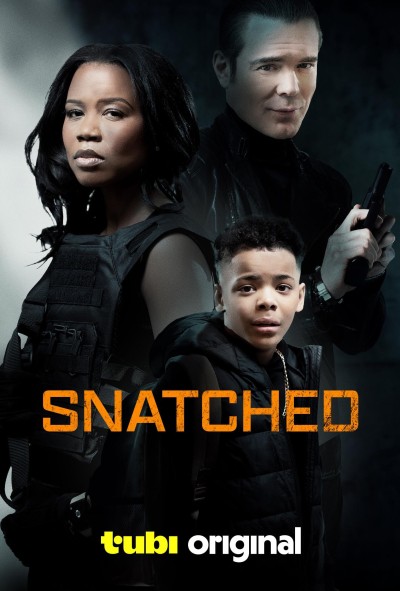 The title here seems quite deliberately a nod towards Taken, which similarly has an ex-government operative chewing up and spitting out bad guys, after they make the fatal mistake of abducting the operative’s child. In this case, it’s CIA operative Angela (Bozeman), who lost her husband Jason in murky circumstances, but subsequently put away Dmitri (Weber), the criminal mastermind responsible. Now, six years later, she can get on with living her life, bringing up son Jason Jr. (Cheatham), and hanging out with fellow agent Byron, who seems a possible husband replacement. Well, until Dmitri escapes from prison and starts killing off everyone he considers responsible for putting him behind bars.
The title here seems quite deliberately a nod towards Taken, which similarly has an ex-government operative chewing up and spitting out bad guys, after they make the fatal mistake of abducting the operative’s child. In this case, it’s CIA operative Angela (Bozeman), who lost her husband Jason in murky circumstances, but subsequently put away Dmitri (Weber), the criminal mastermind responsible. Now, six years later, she can get on with living her life, bringing up son Jason Jr. (Cheatham), and hanging out with fellow agent Byron, who seems a possible husband replacement. Well, until Dmitri escapes from prison and starts killing off everyone he considers responsible for putting him behind bars.